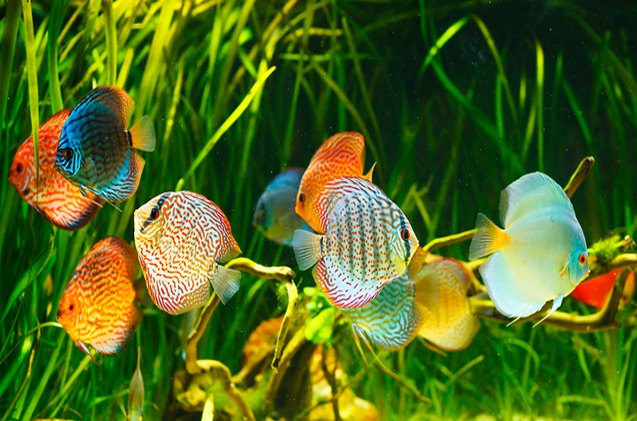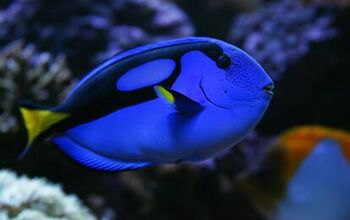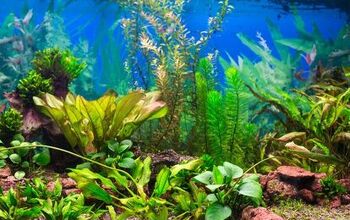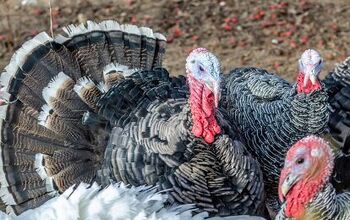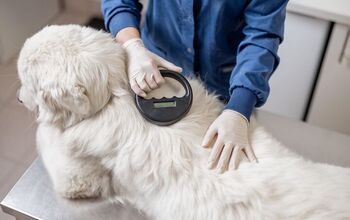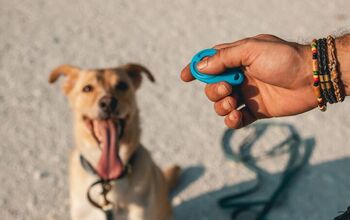The Dish on Discus


Discus are a gorgeous freshwater fish, oftentimes kept by experienced hobbyists. Popular opinion is that they require specific water parameters, temperature, tank size, and tank set ups. While some of this is true, the discus is not quite as finicky as it was once believed to be. This may be because of domestic breeding operations improving genetics, or because keepers are becoming more knowledgeable about the species. In either case, we wanted to give you a guideline on what discus fish really need to thrive in a home aquarium.
Discus Basics
Originating from the Amazon River, discus are slender, disc-shaped fish that come in a wide variety of colors. These fish should be kept in a larger tank, preferably tall, to accommodate their shape and height. A minimum of 10 gallons per adult is recommended for the health and safety of the fish. It’s important to remember that discus are cichlids, and like most cichlids, they are territorial and require a good balance of tank mates to create their hierarchy and minimize aggression among each other. Discus can be kept with other tank mates who will not compete them for food, as discus are slow moving fish that like to graze the tank for their meals. Their tank mates shouldn’t be excitable, energetic fish. Typically, tetras, such as cardinals or rummy nose, sterbai corys, or German blue rams, are chosen to live alongside the discus. When choosing tank mates, it is important that all stock are capable of tolerating the higher temperatures (82-86 degrees F) required by discus.
Oxygen, Water and Food
Because they like to be in higher temperature water, oxygenation is key. The higher the temperature, the less oxygen content will be in the water column. This means you’ll need a surface agitator, bubble wand, or sponge filter to provide discus with oxygen.
Related: Take a Walk On the Wild Side of Bettas
Water parameters for discus fish are simple. They need clean water, well filtered. However, some believe that they must be kept in soft water or even RO (reverse osmosis) water to thrive. This is not true, in most circumstances. Discus are becoming more prevalent in the hobby, and so with each generation, they become stronger and more capable of adapting to conditions. Water hardness/softness and pH becomes much more important when breeding discus, but not when just keeping them. Many breeders will hatch their discus in soft RO water, but when growing out, will do so in tap water. When choosing stock, you may want to ask your supplier what their water conditions are, and try to find one with similar water to that you’ll be keeping your fish in.
Discus can be kept in planted tanks, and with C02. Elements that cause discus stress are large swings in temperature, pH, and total dissolved solids. As long as you are careful with the changes of pH, and provide adequate oxygenation in the tank at night, your discus will not mind living in a green tank.
The diet of a discus is omnivorous, meaning they eat both meat and vegetables. They shouldn’t be fed strictly commercial pellet or flake food, but a variety of high protein foods such as a quality flake/pellet, beef heart, blood worms, brine shrimp, mysis shrimp, etc. This will not only improve their overall health, but will improve their general aesthetic appeal.
Choosing Discus Fish for Your Tank
When you’re ready to purchase your first discus, a few things are important to consider. Juvenile discus cost less than their adult counterparts. Even though you may be tempted to save a few bucks by going with a younger fish, consider this first. Juvenile discus must be fed as often as 5 times a day, and require a high protein diet that can easily dirty up even the best water. For this reason, a bare bottom tank is a necessity, with frequent water changes of up to 80 percent. To save some money, you’ll be increasing your work load, and sacrificing the ability to place your fish into a decorated or planted tank. It is imperative to your success that you choose your supplier wisely. You’ll need to do plenty of research and speak with other known discus keepers/breeders to find the best sources. If possible, go with fully grown discus, and preferably from the same supplier. That way, you won’t introduce new parasites that often come with different suppliers.
Related: 6 Popular Aquarium Fish You Need To Avoid
If it is absolutely not possible to order fish directly from a discus supplier, and a fish store must be used, look for healthy stock that is active, eating readily, and have erect – not clamped – fins. Do not be afraid to ask the store to feed the fish for you to see, or ask where they get their stock from. Discus shouldn’t have pinched foreheads or stomachs, and should appear colorful and healthy. It is also important, regardless of where your fish come from, to practice good quarantine to minimize the risk of infecting your existing stock with disease or parasites.
Oftentimes discus are viewed as a fish for the expert aquarist. While they are not a fish for a beginner, they can be kept by someone who fully understands basic fish husbandry. Knowing the nitrogen cycle, understanding filtration, stocking levels, and basic diet and needs will be sufficient to get your feet wet with these beautiful fish.
Jose Garcia, who has been keeping discus for nearly a decade advises: “Discus today are generally not as delicate as their reputation suggests. If you have an understanding of the nitrogen cycle, practice good husbandry, have a solid filter maintenance program in place, are willing to do regular water changes, and pick good stock from the start, then you can very likely be a successful discus keeper.”
Summer Davis is the mom of three kids, four dogs, and several tanks of fish. She boasts a passion for all animals, whether they are in the water or on land. This fish aficionado has kept many different species in her time, but holds a special place in her heart for wild and domestic bettas. When she’s not talking about fish, Summer “spins” her extra time as the director of a baton twirling organization.

Summer Davis is the mom of three kids, four dogs, and several tanks of fish. She boasts a passion for all animals, whether they are in the water or on land. This fish aficionado has kept many different species in her time, but holds a special place in her heart for wild and domestic bettas. When she's not talking about fish, Summer "spins" her extra time as the director of a baton twirling organization."
More by Summer Davis



